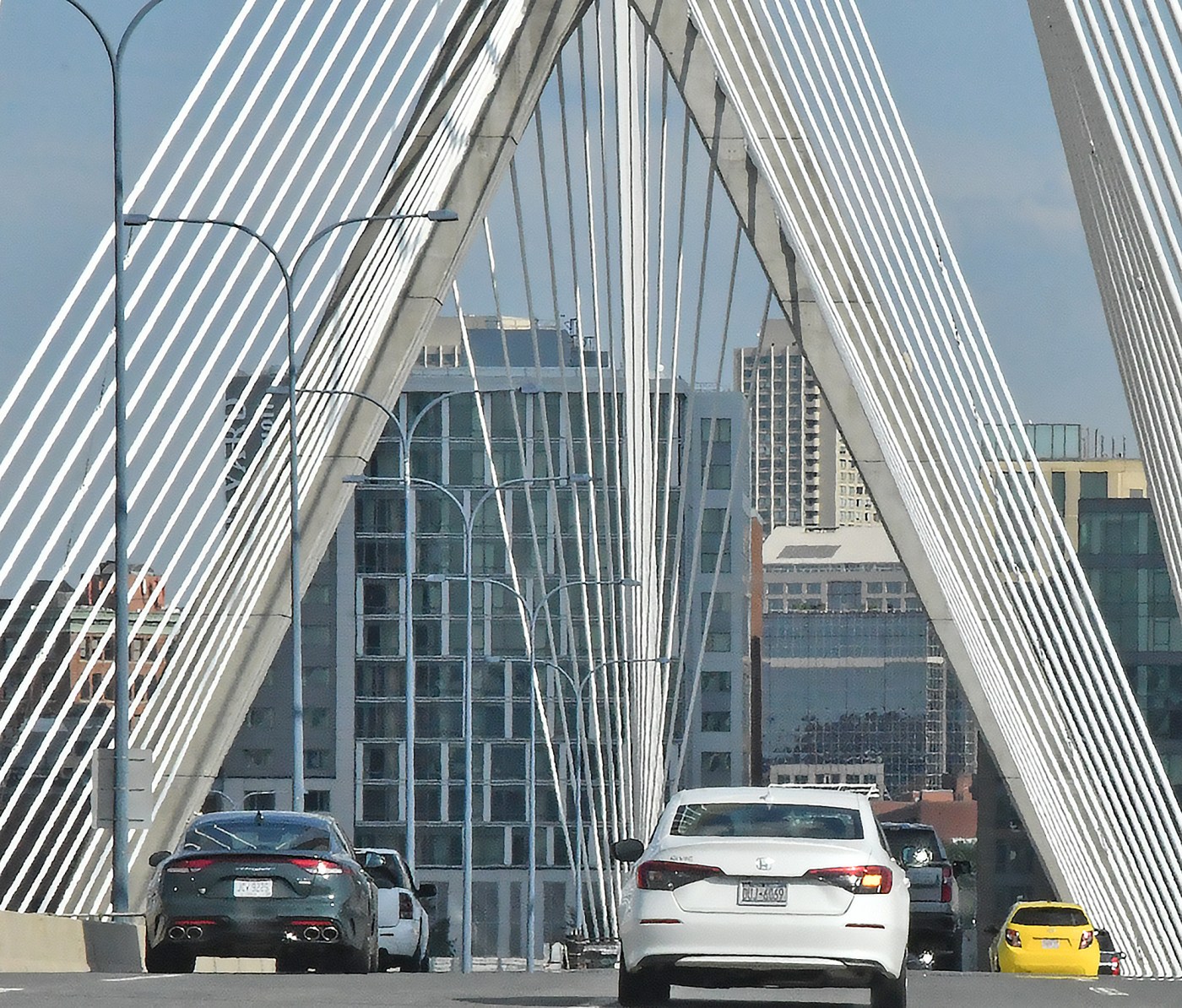
Boston explores congestion pricing in wake of New York’s failed plan
The collapse of congestion pricing in New York City did not deter the Boston City Council from exploring the idea, or advocates from touting their perceived benefits of a new fee for drivers entering the downtown core, at the matter’s first hearing.
The Council subcommittee hearing held on Monday came roughly five months after Councilor Tania Fernandes Anderson filed an order for one back in February, and from the day’s two-hour-plus discussion, it was clear not much had changed, in terms of there being no current plans from the Wu administration to implement congestion pricing, and no concrete sense of what it would look like in Boston.
“The administration is currently not actively pursuing congestion pricing in Boston, but we are very interested in the topic,” said Vineet Gupta, director of policy and planning for the city’s Streets Cabinet, on behalf of the mayor’s team.
Gupta said the Wu administration plans to take its cue from the recommendations of the governor’s transportation funding task force, which was created last February and tasked with developing a long-term transportation finance plan for the region’s beleaguered public transit system, along with roads and bridges.
Advocates, several of whom were included as expert panels at the day’s hearing, have touted congestion pricing as a key way to achieve that goal, saying that European cities that have implemented such a fee on drivers have used those funds to fix their public transit systems.
They also spoke about how it would reduce traffic in Boston, which was found to be fourth worst in the country and eighth worst in the world in a study released last month by INRIX, a global transportation and data analytics company.
“Cities and regions with congestion pricing policies experience, well, less congestion, but they also improve their fiscal stability for their transit operations, and they create opportunities to create roadway safety and livability in the process,” said Adie Tomer, senior fellow at Brookings Institution, a nonprofit public policy organization based in Washington, D.C.
Some U.S. cities have already experimented with mobility pricing, such as increasing tolls during peak commuting hours and decreasing them during off-peak hours on highways, bridges and tunnels, or taxing drivers by miles traveled in their personal vehicles, both of which are being considered by the governor’s task force, according to Tomer and Gupta.
“The policy, though that most are starting to think about, and the one capturing our attention is what’s called cordon, or area-wide pricing,” Tomer said. “That’s when it costs a certain amount to enter entire neighborhoods, often the urban core, but even then cordons always look different.”
That type of congestion pricing has been implemented abroad in London, Stockholm and Singapore, and was set to take effect in New York City on June 30, before the governor, Kathy Hochul, abruptly pulled the plug — 15 years after it was first proposed and after roughly $700 million was invested in the plan, including a $555 million contract to install tolling cameras, the Wall Street Journal reported.
The abrupt cancellation, which reportedly caught advocates and the head of the Metropolitan Transportation Authority off-guard, was included in questions put forward by councilors, who were discussing moving forward with a similar model in Boston.
Jarred Johnson, executive director of TransitMatters, a public transportation advocacy group that focuses on the MBTA’s challenges, said that rather than point to an argument against such a model, what happened in New York City “actually shows us the peril of stopping congestion pricing.”
“Because now the governor is actually in an incredibly tough political position — I think I would argue a tougher political situation than she was on the eve of implementing congestion pricing,” Johnson said. “Now, she’s blown a $15 billion budget in the MTA capital plan, and there seems to be no one who is willing to bail her out.”
New York had been poised to charge $15 for entrance into the Manhattan core, with prices varying depending on the size of vehicle and time of day. Such a plan, Johnson estimated, would take 7-10 years or longer to implement in Boston.
Not everyone was convinced by the day’s advocacy.
Several councilors pointed to the poor state of the MBTA as a reason against implementing congestion pricing, saying that its unreliability precludes people from ditching their cars.
Related Articles
Boston city councilor urges Wu administration to take office vacancies ‘seriously,’ pushes for study group
Boston retirees making bank: Nearly 200 receive $10K or more in monthly pension
Karen Read murder case: Former Boston Police Sgt. Brian Albert earning generous pension
‘Disgusting’: Boston Police investigating ‘anti-American’ July 4 defacement of war monuments
‘Frustrating’: Boston City Council forced to cancel hearings due to holiday absences from Wu administration
In the case of low-income shift workers, the lack of late-night train services means they’re forced to drive into Boston, according to Councilor Ed Flynn, who opposes congestion pricing, in part, because it would unfairly penalize those drivers.
“Boston is already an expensive city,” Flynn said. “It would be unfair to make commuting even more expensive for those already struggling to make financial ends meet.”
Councilor John FitzGerald also cited hesitancy, saying that he found the idea to be a “hard sell,” particularly when the downtown was “taking a beating lately” with the coupling of declining office building values and the potential for higher commercial taxes.
“I do worry about this diverting people, when we need people to come into the city, that this actually helps them decide that I’m not going to come in because I don’t want to pay a tax,” FitzGerald said.
Other councilors who appeared more receptive to the idea, such as Fernandes Anderson, Julia Mejia and Gabriela Coletta Zapata, did so while citing equity concerns.


